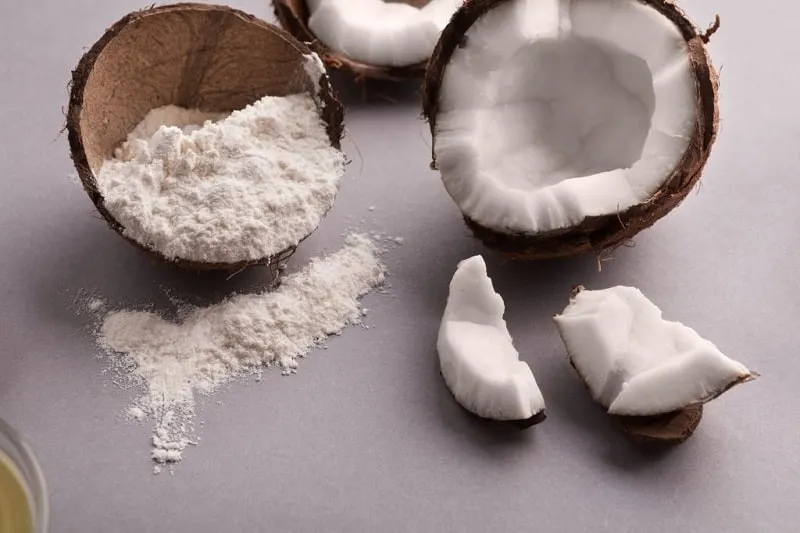Coconut flour, the well-received alternative of wheat flour, has been in high demand for quite a while.
It may owe that to its lack of gluten and allergens, which makes it ideal for anti-gluten enthusiasts and people who suffer from allergies and are unable to consume wheat flour.
Whether you were interested in coconut flour for a paleo diet, are plagued by allergies, or just want to enjoy some coconut flour, go right ahead!
It’s a natural health food and not only is it rich in healthy fats and nutrients, but it also helps stabilize blood sugars, as pointed out by Healthline.
All these qualities make coconut flour one of the best kinds of flours. However, even with all these benefits, there’s bound to be a catch, right?
Sadly, that also applies in this case in the form of its shelf life. If you were wondering, does coconut flour go bad, carry on reading to find out.
Does Coconut Flour Go Bad? How Long Does Coconut Flour Last?

Coconut flour does indeed go bad. In fact, it doesn’t even last as long as all-purpose flour and tends to degrade in quality much quicker.
Opened coconut flour lasts as long as its expiry date in the pantry and for 3-6 months in the fridge and 6-12 months in the freezer after its expiry date.
On the other hand, unopened coconut flour lasts for 3-6 months in the pantry, 6-12 months in the fridge and 12-24 months in the freezer after the expiry date.
The difference between the Best By dates of coconut flour and other types of flour is apparent. The prime factors that contribute to this decrease in longevity are oils and fats.
Coconut flour tends to oxidize and get rancid far quicker than regular flour. In this aspect, it is similar to almond flour.
Once flour gets rancid, the quality goes severely down. Furthermore, rancid foods not only have diminished nutritional value but may even harm your health, as pointed out by Dallas News.
In such a case, it is best to just buy another bag of flour instead of consuming rancid flour and unknowingly undermining your physical condition.
How to Tell If Coconut Flour Is Bad? Coconut Flour Shelf Life!

Just like coconut water, coconut flour has a few indications of spoiling. These include:
- Clumpy flour
- Weird smell
- Insects in the flour
- Bitter taste
These signs start to manifest by the time the coconut flour nears its final date.
Rancidity is eventual and inevitable in coconut or any fat-heavy flour. That’s why it is important to safely store or even freeze the flour.
In addition, rancidity causes that off-putting smell we all hate and may even affect the taste.
On the other hand, insects or clumps may also point to spoiled flour.
However, if they are few and far between, they be filtered through a flour sifter and the flour can be used without any worries.
Freezing prolongs the time the flour lasts for but only to a certain extent.
Any further than that, and the flour begins to lose its distinct flavor, making consumption worthless.
Conclusion

Ultimately, while coconut flour may be for the health-conscious, it is best to consume the edible in a short while.
Nonetheless, it is a great alternative to wheat flour and is sure to give you an appetizing meal filled with nutrition.

Does Coconut Flour Go Bad? How Long Does Coconut Flour Last?
Ingredients
- Coconut flour
- Air-tight containers or Ziplock bags
- Labels and markers
Instructions
- Read the guide thoroughly to learn how long it lasts.
- Check the u0022Best-by-dateu0022 to know when it expires.
- Make sure to store in an airtight container in a cool, dark place (pantry or fridge).
- Always check for signs of spoilage before using.
